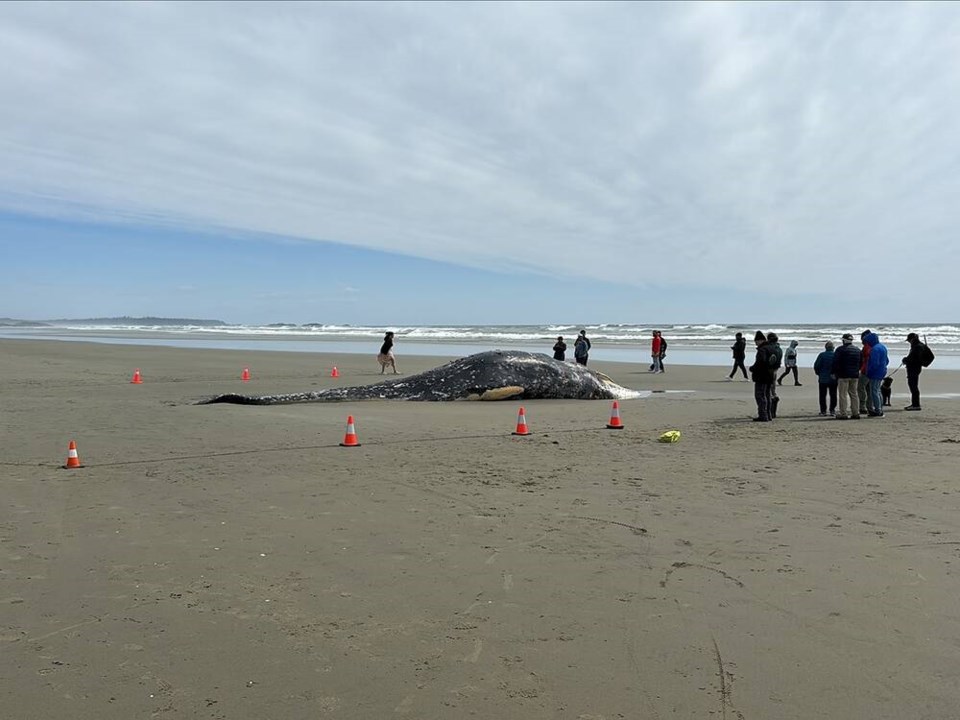Parks Canada is closing a section of Long Beach in the Pacific Rim National Park Reserve on Saturday to allow First Nations to preside over a cultural ceremony for the deceased grey whale that washed ashore this week.
The beach will be closed off early Saturday at low tide for the 8 a.m. ceremony and remain off limits until further notice.
The Tla-o-qui-aht First Nation said in a social media post that the ceremony will include the harvesting of the whale’s blubber, bones and baleen — “a smelly, messy, greasy experience.”
Tla-o-qui-aht elder Joe Martin will be on hand as the whale is used for cultural purposes.
Sampling for necropsy will be taken after the ceremony. The Department of Fisheries and Oceans says the cause of death won’t be confirmed until after the necropsy reports are complete, which usually takes two to three months.
Tla-o-qui-aht parks guardian Gisele Maria Martin spotted the whale floating out in rough seas in front of the Esowista Peninsula on Monday.
When it washed ashore, “the first thing we did was ceremony,” she said. “We did a chant for the whale.”
In Nuu-chah-nulth culture, whales are represented in a lot of stories and have brought wealth to nations, Martin said. They also carry a strong connection to the supernatural.
“Seeing it up close made me think of the amazing strength and endurance that the whale hunters had,” she said.
The whale is located more than 800 metres from the south parking lot. The beach will be blocked off and only Tla-o-qui-aht members permitted on the whale site.
Parks Canada issued a superintendent’s order to close the beach to the public “until further notice” and warned of strong odours. Violators can be charged under the Canada National Parks Act and face a maximum penalty of $25,000.
— With files from The Canadian Press



